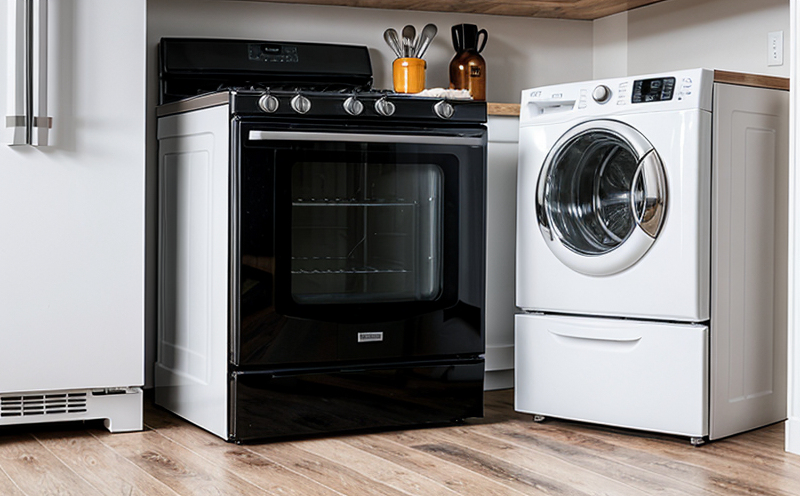Durability Testing of Appliance Switches
In consumer products and product safety testing, durability testing of appliance switches is a critical component ensuring the longevity and reliability of household appliances. Consumer electronics and home appliances are subjected to various stresses during their lifecycle, from manufacturing to daily use in harsh environments.
Switches, as a fundamental part of these devices, must withstand frequent on/off cycles without degradation or failure. This type of testing is essential for manufacturers to meet regulatory requirements while enhancing product quality and consumer safety. Durability tests simulate real-world conditions, including temperature cycling, mechanical stress, and vibration, which can help predict the lifespan of switches.
The test procedure involves selecting a representative sample of switches and subjecting them to controlled environmental and mechanical stresses. This includes high-temperature exposure followed by rapid cooling cycles, repetitive mechanical loading, and static load holding for extended periods. The goal is to identify potential weaknesses or failures that could lead to product recalls or safety hazards.
Testing standards such as ISO 7243:1986, EN 60914-1:1995, and IEC 60914-1:1995 provide guidelines for switch durability testing. Compliance with these standards ensures that the tested switches meet international quality and safety benchmarks.
For manufacturers, understanding the specific requirements of each appliance is crucial when selecting test conditions. Factors such as the expected number of cycles, temperature ranges, and mechanical load capacities are determined based on the intended use case of the appliance. This information is then used to design a comprehensive test protocol that accurately reflects real-world usage.
During testing, it's important to consider not only the switch itself but also its integration into the larger system. This holistic approach ensures that any issues identified can be addressed at the component level rather than causing broader problems later in the product lifecycle.
Scope and Methodology
- Environmental Stress: High-temperature exposure followed by rapid cooling cycles to simulate extreme temperature conditions encountered during use.
- Mechanical Loading: Repetitive on/off switching under specified load capacities to assess mechanical durability.
The testing process begins with selecting a representative sample of switches. This involves choosing components that are typical for the intended application, ensuring they reflect real-world variability within production batches. Once selected, these samples undergo rigorous environmental stress tests in controlled laboratory conditions.
Temperature cycling is performed to simulate the effects of varying ambient temperatures over time. Switches are exposed to cycles where temperature extremes are applied rapidly, mimicking how devices might experience sudden changes in temperature during use. Mechanical loading involves applying specific loads repeatedly while measuring switch performance throughout each cycle. This helps identify any wear or failure points that could indicate a need for design improvements.
After completing the specified number of cycles under defined conditions, switches are inspected for signs of damage or malfunction. Any issues detected are documented and analyzed to determine their cause. If necessary, additional tests may be conducted on failed samples to identify specific areas requiring improvement.
Eurolab Advantages
- Comprehensive Expertise: Our team of experienced engineers and scientists ensures accurate testing according to international standards. We stay updated on the latest developments in switch technology, ensuring our methods remain relevant.
- State-of-the-Art Facilities: Equipped with advanced testing equipment capable of simulating a wide range of environmental and mechanical stresses, providing precise results that meet stringent quality control requirements.
At Eurolab, our commitment to excellence extends beyond just performing tests; we also provide valuable insights into how the test results translate into practical improvements for your products. Our experienced engineers can help interpret data, identify potential areas of improvement, and recommend best practices based on industry trends.
We offer a full suite of services tailored specifically towards ensuring compliance with relevant regulations across different markets globally. Whether you're looking to meet local or international standards, our team can assist in navigating the complexities of regulatory requirements specific to your market.





